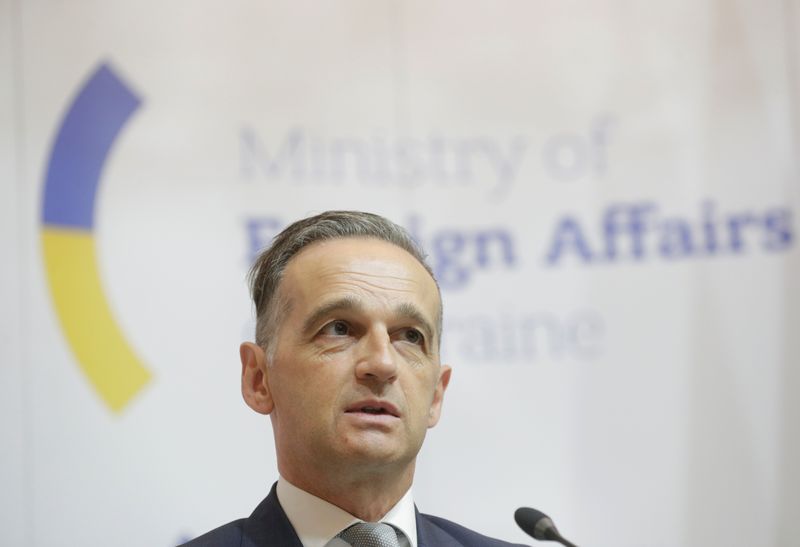KYIV (Reuters) – Ukraine has frozen contact with Belarus and joined the European Union in condemning the recent elections in its northerly neighbour as not free or fair, Foreign Minister Dmytro Kuleba said on Friday.
Kuleba said there was no reason to break off diplomatic relations entirely, but added Ukraine would take a decision on imposing sanctions on Belarus after seeing what the EU would do.
“We put all contacts on pause until the situation in Belarus stabilises,” he told a briefing.
Ukraine has so far been guarded when commenting on the political turmoil engulfing Belarus, a fellow former Soviet republic, since an Aug. 9 presidential election sparked mass protests against veteran leader Alexander Lukashenko.
While Belarus is traditionally a close Moscow ally, Lukashenko made common cause with Ukraine in refusing to recognise Russia’s annexation of Crimea in 2014 and has hosted talks on the conflict in the Donbass region of eastern Ukraine.
His opponents accuse Lukashenko of rigging the vote to extend his 26-year rule. He denies electoral fraud. Ukrainian President Volodymyr Zelenskiy has called for new elections but said it was up to Belarusians to choose their leader.
Belarus responded saying it did not need Ukraine’s advice, the Belarusian news outlet tut.by reported.
Ukraine has temporarily banned the entry of foreigners into the country to contain the spread of COVID-19, but Kuleba said Belarusians wanting to escape their political crisis might be exempted and given entry permits.
Ukraine was angered when Minsk decided not to extradite a group of Russians detained in Belarus in July despite initially being receptive to the idea. Belarus had accused the men of seeking to destabilise the country, marking an unusual diplomatic row with Russia that was later patched up.
At the time, Russia had said the men were private security workers on their way to a third country. Russian President Vladimir Putin said on Thursday the men had been lured to Belarus by a Ukrainian-U.S. intelligence operation.
Ukraine denied such an intelligence operation existed but wanted to extradite 28 of the group, suspecting the men of fighting alongside Russian-backed separatists in the Donbass. Belarus initially agreed to cooperate in the case with Ukraine, but instead handed the men to Russia this month.
(Editing by Mark Heinrich)
























